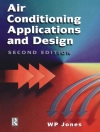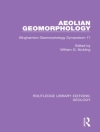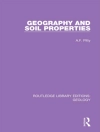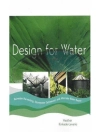This book highlights recent advancements in such an important topic, through contribution from experts demonstrating different applications in ‘day-to-day’ life, both existing and newly emerging non-biological technologies, and thought provoking approaches from different parts of the world, potential future prospects associated with some frontier development in non-conventional energy sources. It covers different types of natural energy sources such as: Ocean, Tidal and Wave energy; Nuclear energy; Solar cells; Geothermal energy; Hydrogen Fuel; Photovoltaic modules; Gas hydrates; Hydrate-based Desalination Technology; and Hydrothermal Liquefaction of Kraft Lignin/ Lignocellulosic Biomass to Fuels and Chemicals. This book is a comprehensive and informative compilation for international readers, especially undergraduate and post graduate students and researchers.
Table of Content
1 Ocean, Tidal and Wave Energy: Science and Challenges.- 2 Nuclear Energy and Conventional Clean Fuel.- 3 Solar cells: application and challenges.- 4 Photovoltaic modules: Battery storage and grid technology.- 5 Geothermal energy: Exploration, Exploitation, and Production.- 6 Application of high-temperature thermal energy storage materials for power plants.- 7 Hydrogen Fuel: Clean Energy Production Technologies.- 8 Natural Gas Hydrates – Energy Locked in Cages.- 9 Gas Hydrates in Man-made Environments: Applications, Economics, Challenges and Future Directions.- 10 Hydrate-based Desalination Technology: A Sustainable Approach.- 11 Subsurface Decarbonisation options as CO
2 hydrates with Clean Methane Energy Recovery from Natural Gas Hydrate Reservoirs.- 12 Combined Heating and cooling system with Phase Change Material: A Novel Approach.- 13 Hydrothermal Liquefaction (HTL) of Kraft Lignin (KL) Recovered from Lignocellulosic Biomass: State of the Art.- 14 Catalytic Hydropyrolysis and Hydrodeoxygenation of Biomass and Model Compounds for Fuels and Chemicals.
About the author
Dr. Sanket Joshi is a Deputy Director, Oil & Gas Research Center, and an Application Specialist, Oil & Gas Science, at Sultan Qaboos University, Oman. He holds BSc and MSc from Sardar Patel University, India, and a Ph D from M. S. University of Baroda, India – all in Microbiology. Dr. Joshi has 16 years of academic teaching and research experience, and 4 years of industrial R&D experience, in India and Oman. His current research interests encompass: Energy, Microbial products, and Environmental bioremediation. He serves as an Academic/Associate Editor/Guest editor for some of the highly reputed journals; book series editor for Elsevier INC.
Dr. Ramkrishna Sen is a Professor and the Head, Department of Biotechnology, IIT Kharagpur. He is also the Chairperson of the School of Bioscience and Central Research Facility. He administered as Chairman (GATE-&-JAM), IIT Kharagpur. Prof. Sen worked as Manager (R&D-Biotech), Cadila Pharma Ltd. He servedas Fulbright Visiting Faculty in Columbia University, New York. His research areas include Healthcare, Energy, Environment and Water. So far, 24 Ph D scholars completed their degrees under his supervision. He has about 230 international & national publications and 15 patent applications to his credit. Prof. Sen recently featured in the list of top 2% Indian Scientists in the World.
Dr. Atul Sharma is currently Associate Professor at Rajiv Gandhi Institute of Petroleum Technology, India. He has worked as a Scientific Officer in Devi Ahilya University, India; as a Research Assistant at KIER, South Korea; and as a Visiting Professor in Kun Shan University, Taiwan, R.O.C. Dr. Sharma completed his M. Phil. and Ph.D. from School of Energy and Environmental Studies, Devi Ahilya University, India. Dr. Sharma published several edited books from the various well-known international publishers; research papers in various international journals and conferences. He is working on the development and applications of PCMs, green buildings, solar water heating systems, solar air heating systems, and solar drying systems.
Prof. P. Abdul Salam is currently serving as Professor and Chair of Sustainable Energy Transition Program, Department of Energy, Environment and Climate Change, Asian Institute of Technology, Thailand. Prof. Salam has over 25 years of international experience in research, consultancy and capacity building in the areas of bioenergy, waste to energy, renewable energy, energy efficiency, energy storage, smart energy buildings, climate change mitigation, and water-energy-food nexus. He has obtained his bachelor’s degree in mechanical engineering from University of Peradeniya, Sri Lanka; ME and Ph D in Renewable Energy and Energy Technology, respectively, from AIT. Prof. Salam is a member of American Society of Mechanical Engineers, American Society of Heating, Refrigeration and Air-conditioning Engineers, International Solid Waste Association, and World Bioenergy Association.












